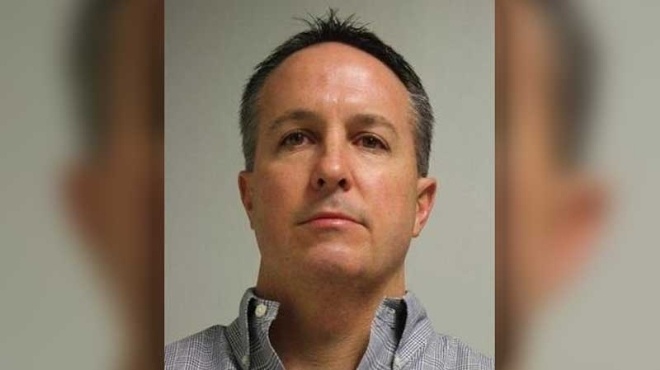
Barry Cadden
Mixed verdict in trial of NECC co-founder Barry Cadden for deadly meningitis outbreak
Found guilty of racketeering, not guilty on 2nd degree murder
Mar 22, 2017
Drugs from the New England Compounding Center were linked to 64 deaths and about 700 injuries in 20 states. Jurors began their deliberations Friday, and the clerk announced that they had reached a decision around 9:40 a.m. -- after just under 20 hours of deliberations.
Barry Cadden, 50, was convicted of racketeering and mail fraud, but acquitted on all 25 counts of second degree murder that he faced.
"I hope (the victims) find some solace in the fact that they have justice," said acting U.S. attorney William Weinreb, who called the scandal a "national tragedy."
"I wish I could give him the same shot he gave me. I think they should pay for their crime," Alfred Rye, 77, of Maybee, Michigan, said upon learning of the verdict.
Rye became ill after getting a contaminated injection 4½ years ago. He said he continues to suffer from a loss of balance and other ill effects.
"Life has been totally hell," he said.
Cadden will be released on bail while awaiting sentencing, which is scheduled for June 21. He declined to comment on his way out of the court.

Barry Cadden
Cadden faces up to 20 years in prison for the mail fraud counts and three years for the other convictions.
During the two-month trial, prosecutors said Cadden ran the company in an "extraordinarily dangerous" way by skirting industry regulations on sterility and cleanliness in an effort to push production and make more money.
"It was preventable, but it happened because this man, Barry Cadden, decided to put profits before patients," Assistant U.S. Attorney Amanda Strachan told the jury during closing arguments.
Cadden's lawyers said he was not responsible for the deaths. They said Glenn Chin, a supervisory pharmacist, ran the so-called clean rooms where drugs were made. Chin has pleaded not guilty to similar charges.
"As horrible as each of these stories is, there is nothing that shows that Mr. Cadden did something that the government can link to the death of that person," attorney Bruce Singal told the jury.
Prosecutors said NECC also used expired ingredients and falsified logs to make it look like the clean rooms had been disinfected when they had not.
After the outbreak, regulators found multiple potential sources of contamination, including standing water, mold and bacteria in the air and on workers' gloved fingertips. NECC filed for bankruptcy after it was hit with hundreds of lawsuits from victims or their estates. NECC and several related companies reached a $200 million civil settlement with victims and their families.
In 2013, Congress increased federal oversight of compounding pharmacies, which mix personalized medications for patients and supply them directly to hospitals and doctors.
The Associated Press contributed to this report